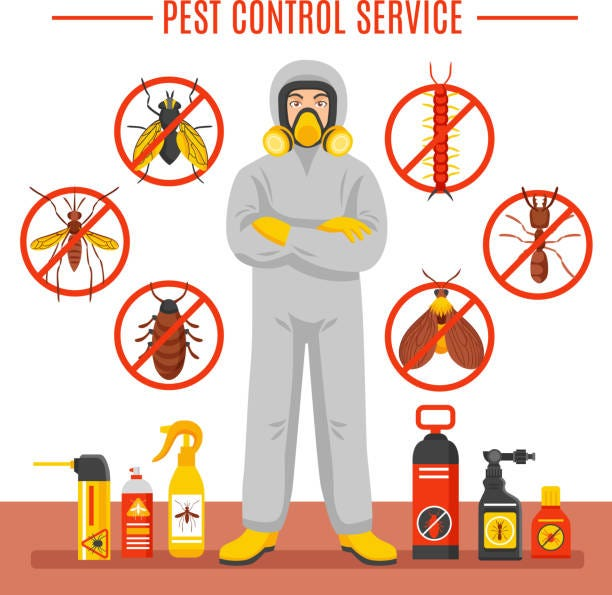Effective Pest Control: Strategies for a Pest-Free Environment
Pest
control
is essential for maintaining a
healthy, comfortable, and safe living environment. Pests such as insects,
rodents, and wildlife can cause significant property damage, spread diseases,
and disrupt daily life. Understanding effective pest control strategies can
help you keep your home or business free from these unwelcome invaders.
Identifying the Problem
The first step in effective pest control is identifying the type
of pest you're dealing with. Different pests require different approaches. For
example, rodents like mice and rats might be attracted to food sources or
shelter, while insects such as termites and ants might be drawn to moisture or
structural weaknesses. Accurate identification is crucial for choosing the most
effective treatment method.
Professional Pest Control Services
For comprehensive pest management,
professional pest control services are often the best solution. Certified pest
control experts have the knowledge and experience to address a wide range of
pest issues. They employ advanced techniques and products, such as:
- Inspection and Assessment: Professionals start with a
thorough inspection to identify the extent of the infestation and the root
cause.
- Targeted Treatments: They use targeted treatments
tailored to the specific pest and its lifecycle, ensuring more effective
control.
- Preventive Measures: Experts provide advice on
preventive measures to avoid future infestations, such as sealing entry
points and improving sanitation.
DIY Pest Control
For minor infestations or preventive
measures, do-it-yourself (DIY) pest control can be effective. DIY options
include:
- Traps and Baits: Using traps and baits can help control pest
populations, especially for insects and rodents.
- Natural Repellents: Essential oils, vinegar, and
other natural substances can deter pests without harsh chemicals.
- Sanitation: Keeping your environment clean and free of food
scraps and standing water can significantly reduce pest attraction.
Integrated Pest Management (IPM)
Integrated Pest Management (IPM) is
a holistic approach that combines multiple strategies for long-term pest
control. IPM focuses on:
- Prevention: Addressing factors that attract pests, such as
food sources and shelter.
- Monitoring: Regularly checking for signs of pests to catch
problems early.
- Control: Using a combination of mechanical, biological,
and chemical methods to manage pests effectively.
Choosing the Right Approach
The best pest control services
strategy depends on the type of pest, the severity of the infestation, and your
specific needs. For severe infestations or when dealing with potentially
hazardous pests, consulting with a professional is often the most effective approach.
For minor issues or preventive measures, DIY methods and IPM strategies can
provide effective control.
Summary
Effective pest control involves a combination of identification, targeted treatments, and preventive measures. Whether you choose professional services or DIY methods, addressing pest issues promptly and comprehensively is key to maintaining a pest-free environment.
Follow our Facebook and Twitter for more information about our product.





Comments
Post a Comment